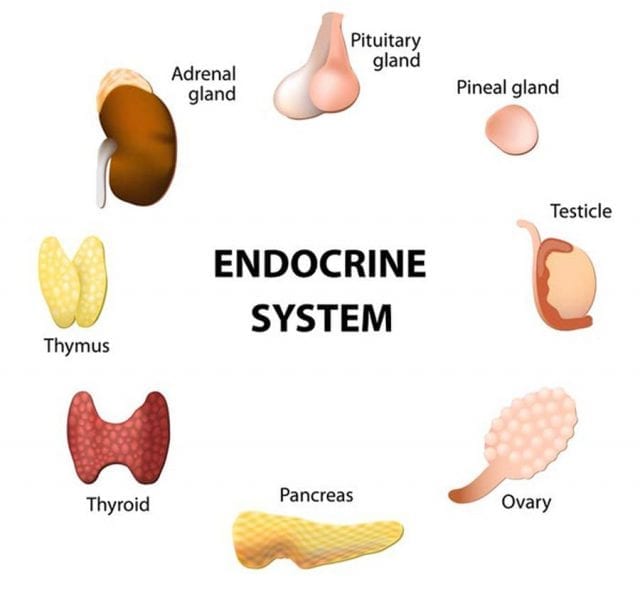
Although the brain is often thought of as the communication system of the body, without the endocrine system and hormones, much of that communication would never take place. The endocrine system consists of glands (and a few organs) that produce and secrete hormones into the bloodstream. These hormones are the chemical messengers that deliver the signals the regulate the many functions in the body.
As mentioned by HGH Therapy Doctor endocrine system also works in conjunction with the exocrine system – the regulator of enzymes, proteins, and electrolytes that help carry out many functions. Some organs, such as the stomach, pancreas, liver, and kidneys, function as both exocrine and endocrine secretors.
Understanding the endocrine system and hormones functions is a vital part of aging. Everyone knows that certain hormone levels decline with age. We see that during both menopause and andropause when the “sex hormones” begin to decrease. Although estrogen is the primary female hormone and testosterone is the primary male hormone, both genders need a healthy amount of each for optimal well-being. Growth hormone is another critical hormone level that begins to decline before most people turn thirty. That loss can have a detrimental effect on the body since GH helps regulate the production of cells, including crucial B and T infection-fighting cells necessary for a healthy immune system. Growth hormone is also essential for proper metabolism, sleep, energy, brain functions, libido, and temperature regulation.
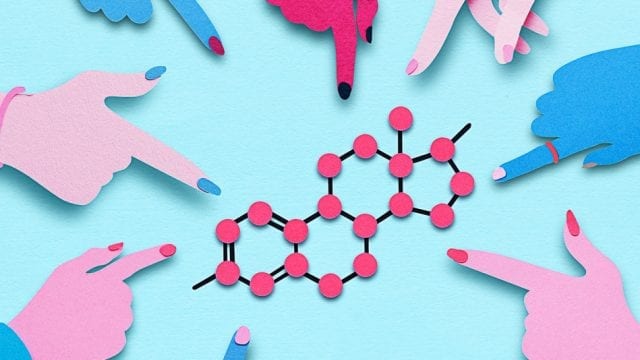
Hormones regulate homeostasis – the body’s crucial balance. The endocrine system responds to both external and internal factors – increasing and decreasing hormone production, as needed.
Protecting the endocrine system and hormones from damage and decline is essential. With the current lifespan of adults in the US well over age 80, it has never been more important to ensure that hormone levels remain at a proper state.
Hormones of the endocrine system communicate crucial messages throughout the body that initiate vital functions.
How Do the Hormones Relate to the Endocrine System?
As we begin our examination of the endocrine system and hormones, we find that the glands that produce and secrete these vital chemical messengers often relay information between one another. For example, the two most important endocrine glands are the hypothalamus and the pituitary gland. The hypothalamus measures a variety of hormone levels in the bloodstream. It uses that information to decide whether to release secretory or inhibitory hormones to the pituitary gland. If there is too much of a hormone in the bloodstream, the hypothalamus will send a hormone to the pituitary gland to prevent further secretion. However, if there is not enough of a particular chemical, it will send a releasing hormone to the pituitary so that it increases hormone production.
This glandular relationship between the endocrine system and hormones is vital to keep in check because the hormones control all the body’s essential functions, including:
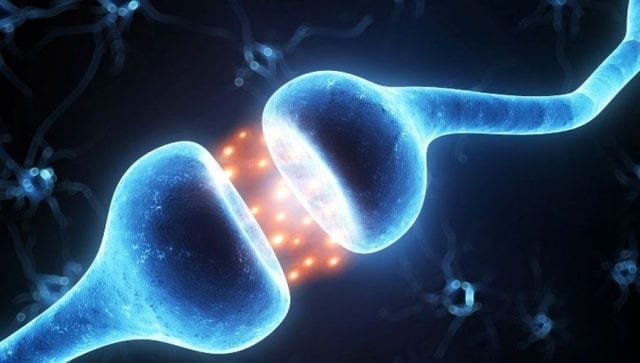
- Metabolism
- Cellular production (including blood cells)
- Organ function
- Reproduction
- Energy
- Electrolyte balance
- Sugar levels and insulin resistance
- Hunger
- Bone density
- Sexual functions and libido
- Blood pressure
- Inflammation
- Sleep
- Heart rate
- Muscle contraction
- Cardiac functions
- Hair growth
- Digestion
- Stress levels
- Pain sensation
- Neurogenesis
- Brain functions
That is only a partial list of the many functions performed by the endocrine system hormones.
Hormones from the endocrine system enter the bloodstream where they evoke specific responses in the other cells, organs, and tissues throughout the body. A hormone will bind with its receptor cell – either on the outside or the inside of the cell – to initiate an action. Just as the nervous system uses nerves to transmit messages, the endocrine system uses hormones.
Hormonal imbalance occurs when one or more hormone levels are too high or too low. Because many hormones stimulate or inhibit the release of other hormones, an imbalance could cause a spiraling effect throughout the body.
In addition to the hormones, the endocrine system requires enough of the target receptor cells to receive these messages. If there is a decrease in receptor cells, or if they cannot receive their signals, the actions of the hormones will not occur.
Endocrine hormones move through the bloodstream to find their receptor cells.
The Relationship between the Endocrine System, the Exocrine System, and Hormones
What is the difference between the endocrine system and hormones and exocrine system and its chemicals?
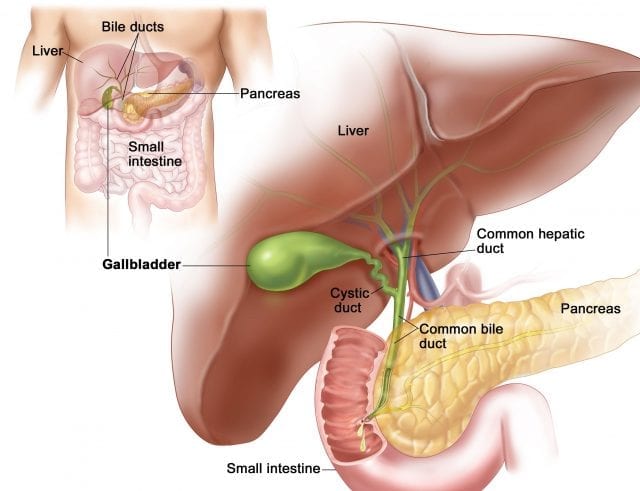
Exocrine glands include the following:
- Salivary glands – produce saliva that contains some digestive enzymes
- Sweat glands – for the release of perspiration
- Lacrimal glands – tears
- Mammary glands – breast milk
- Liver (organ) – bile for digestion
- Pancreas (organ) – digestive enzymes
Exocrine glands do not secrete their chemicals into the bloodstream; rather they enter the ductal system to carry out their functions. Two exocrine glands, the liver and pancreas, are also part of the endocrine system providing essential hormones.
The primary difference between exocrine glands and the endocrine system and hormones is that endocrine secretions enter the bloodstream and work internally, and exocrine secretions end up external to the body. Even the digestive enzymes which go to work digesting food exit the body through urine or fecal matter.
Endocrine system hormones work internally, and exocrine secretions end up external of the body.
The Glands of the Endocrine System and Their Hormones
In the endocrine system, all hormones have their importance. It may not seem as though a hormone that has only one function, such as gastric activity in the small intestine is as important as growth hormone, yet that is not the case. Yes, GH is undeniably one of the body’s most vital hormones. However, motilin, which regulates gastric activity by sweeping undigested material from the stomach and small intestines, is just as essential. Imagine if motilin did not do its job – there would be a build up of undigested material which could eventually inhibit nutrient absorption by the small intestine and lead to an intestinal blockage. As you can see – every hormone is vital to the body.
There are four types of hormones in the endocrine system:
- Steroids
- Amino Acids
- Peptides
- Eicosanoids
Some hormones are water-soluble, meaning the travel freely through the bloodstream until they reach their target cells where they bind with the receptors on the outside of the cells.
Other hormones are fat-soluble (steroids), meaning they must attach to a protein before they can travel through the bloodstream. Fat-soluble hormones bind with receptors in the nucleus or cytoplasm by diffusing into the cell.
Some hormones even double as vitamins, such as calcitriol and calcidiol, the active and inactive forms of vitamin D3, respectively. These two hormones come from the skin and the proximal tubule of the kidneys.
The following endocrine system and hormones chart highlight some of the primary endocrine glands and hormones in the body. It is not a complete listing of the over 70 different hormones.
| Gland | Hormone Type | Hormone Name | Function |
| Hypothalamus | Peptide | Corticotropin-releasing hormone | Stimulates cortisol secretion |
| Peptide | Gonadotropin-releasing hormone | Tells pituitary gland to release luteinizing and follicle-stimulating hormones (LH and FSH) | |
| Peptide | Growth-hormone-releasing hormone | Promotes growth hormone production in the pituitary gland | |
| Peptide | Somatostatin | Inhibits pituitary release of thyroid stimulating, pancreatic, and growth hormones | |
| Peptide | Thyrotropin-releasing hormone | Stimulates thyroid gland activity and hormone release | |
| Pituitary Gland | Peptide | Growth hormone | Metabolism, immunity, brain functions, cell regeneration, IGF-1 production, more |
| Peptide | Follicle-stimulating hormone | Spermatogenesis and ovarian follicle maturation | |
| Peptide | Luteinizing hormone | Ovulation and estrogen and progesterone production in females and testosterone production in males | |
| Peptide | Thyroid-stimulating hormone | Thyroid gland secretion of triiodothyronine and thyroxine | |
| Adrenal Gland | Amino acid | Epinephrine | Muscle contraction, fight or flight response, lipolysis, metabolic rate, blood pressure, more |
| Pineal Gland | Amino acid | Melatonin | Sleep and circadian rhythm regulation |
| Kidneys | Peptide | Erythropoietin | Red blood cell production |
| Peptide | Thrombopoietin | Platelet production | |
| Peptide | Renin | Regulates blood pressure | |
| Liver | Peptide | Insulin growth factor 1 | Supports growth hormone functions including cell reproduction |
| Pancreas | Peptide | Insulin | Regulates glucose levels |
| Peptide | Glucagon | Increases blood glucose levels | |
| Peptide | Amylin | Inhibits digestive enzyme secretions and reduces food intake | |
| Stomach | Peptide | Ghrelin | Hunger stimulator |
| Testes and Ovaries | Steroid | Estradiol (estrogen) | Supports circulation, blood vessels, lung functions, uterine growth, decreases bone resorption, increases SHBG and cortisol levels |
| Steroid | Testosterone | Red blood cell production, libido, metabolism, brain functions, hair growth, bone and muscle growth, spermatogenesis | |
| Steroid | Dehydroepiandrosterone (DHEA) | Testosterone and estrogen precursor | |
| Steroid | Progesterone | Normalizes blood, supports nerve and thyroid hormone functions, testosterone and estrogen precursor, mood enhancer |
The adrenal glands also provide the body with a supply of progesterone, testosterone, and androstenedione – a precursor hormone to testosterone and estrogen.
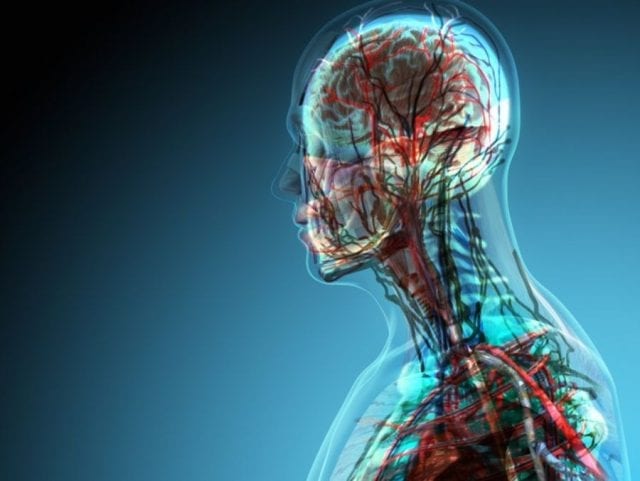
Eicosanoid hormones do not travel far in the bloodstream. They impact cells close to their secretory points with functions that include vasoconstriction and vasodilation. Some of these hormones come directly from platelets and white blood cells as needed for blood clot formation and inflammation-fighting purposes.
Other hormones of the endocrine system support functions that include:
- Blood clot formation
- Decrease inflammation
- Smooth muscle contraction
- Calcium regulation
- Labor stimulator
- Salt and water transport
- Heart contractility
- Dilation
- Vasodilation
- Energy homeostasis
- Insulin secretion
- Sleep
- Muscle function
- Memory formation
- Fat burning – lipolysis
These are only a sampling of what the endocrine system’s hormones do for the body. To learn more about the endocrine system and hormones, as well as how hormone deficiency may be affecting you, please contact our hormone for a complimentary consultation.
Maintaining proper hormonal balance is crucial to a healthy body.








